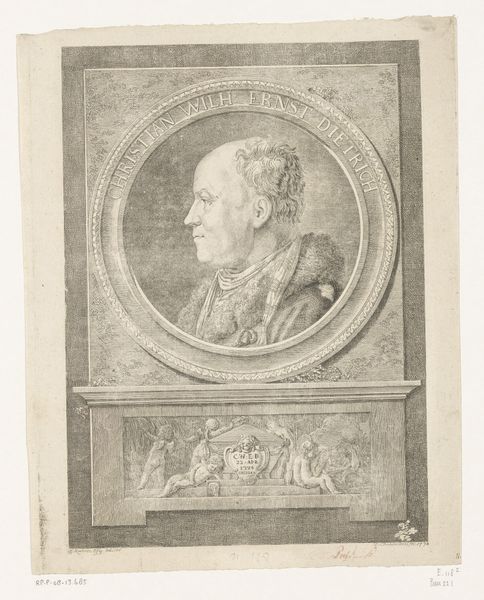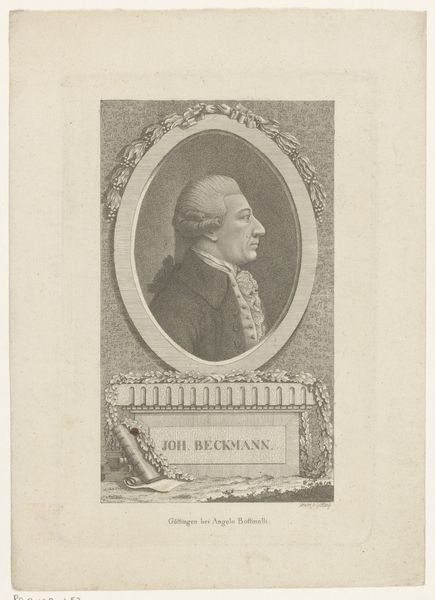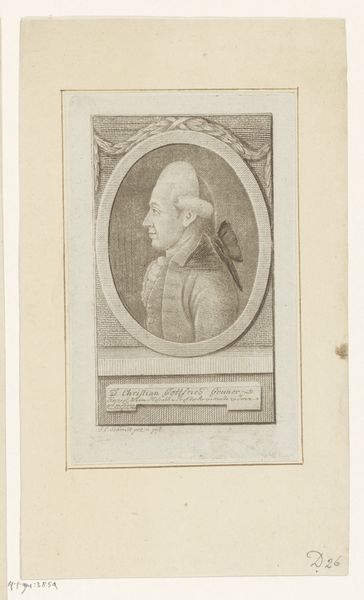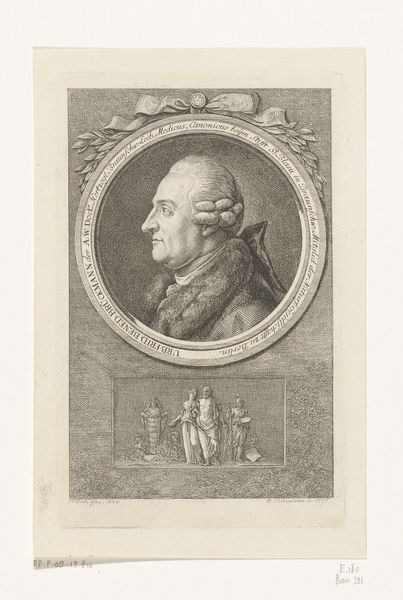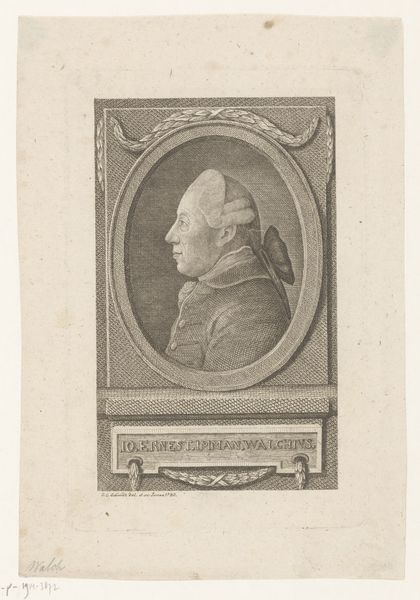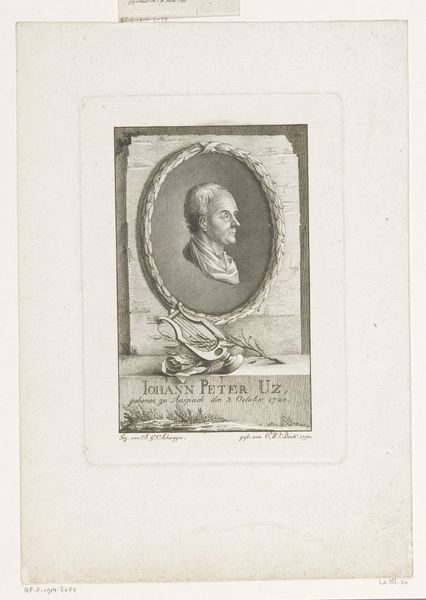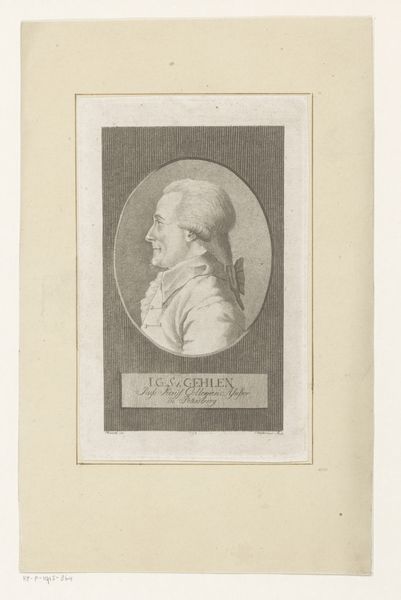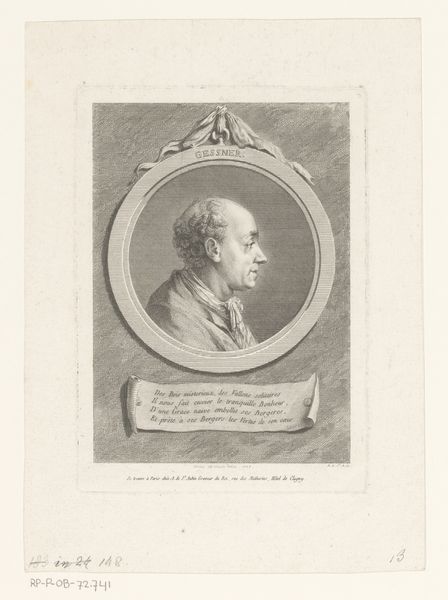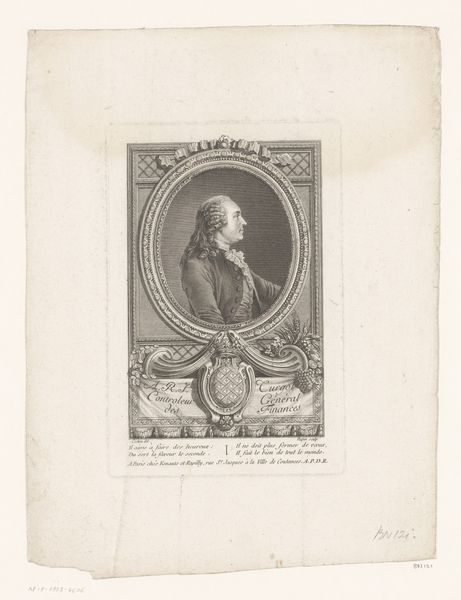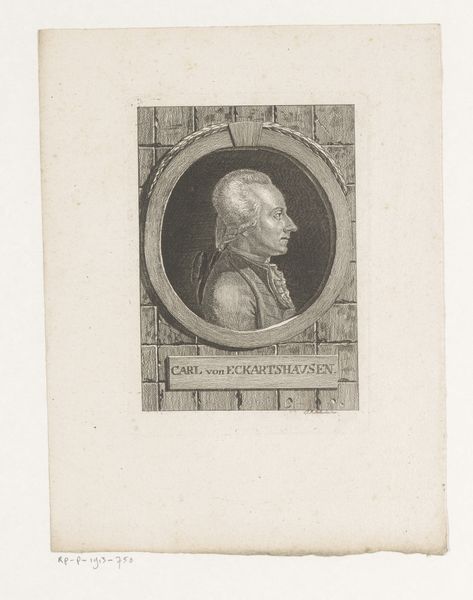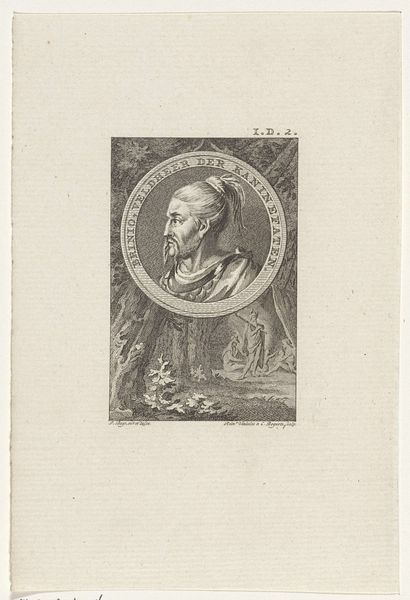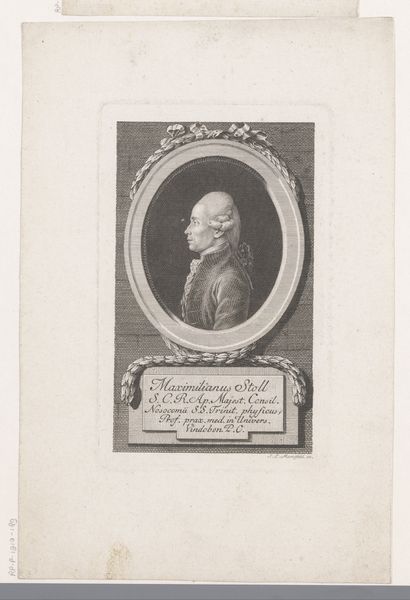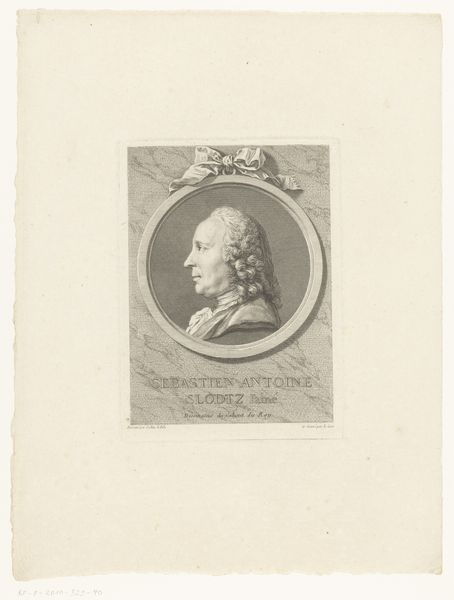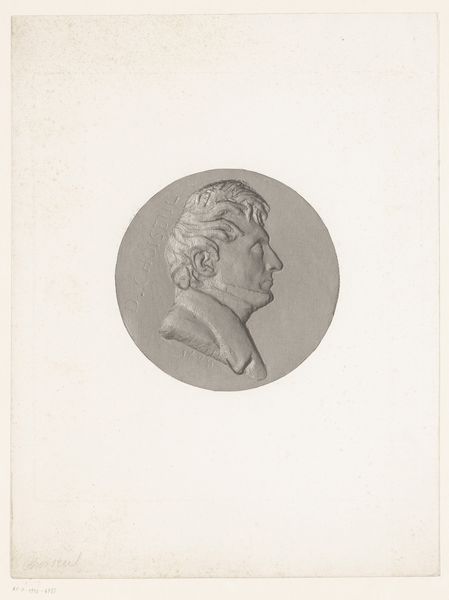
Dimensions: height 279 mm, width 212 mm
Copyright: Rijks Museum: Open Domain
Editor: Here we have Daniel Nikolaus Chodowiecki's 1774 engraving, "Portret van Christian Wilhelm Ernst Dietrich," held at the Rijksmuseum. The detail is amazing, but I am curious: what exactly was the public role of these portraits at that time? Curator: Good question. Think about the socio-political landscape. Who gets their portrait made, and more importantly, *why*? The elaborate framing, the inscription - what do these visual cues tell us about the subject's status and the intended audience? This wasn’t just documentation; it was carefully constructed propaganda for its time. Editor: So, not necessarily propaganda in the negative sense, but... perhaps to project a certain kind of image of a person? What makes it propaganda then? Curator: Precisely. We have to remember how galleries and other art institutions showed art at that time. It wasn’t about expressing individualism, or at least not *only* about the sitter’s unique personality; but embedding Christian Wilhelm Ernst Dietrich within an existing hierarchy. Does the image challenge or reinforce existing power structures? That's the real question. What values are promoted with his likeness and in what ways does the portrait actively convey those values to the contemporary viewer? Editor: It feels like you can read social cues into every element here. I now know it's way more than just ink on paper. Curator: Exactly! Recognizing the context, in essence the *zeitgeist*, transforms our interpretation of even the simplest portrait. We must understand not just what is being depicted, but *why* it’s depicted and the historical forces that made such representation necessary and desirable. Editor: Thanks, that’s helped me appreciate how much art can reflect its time. Curator: And that’s why understanding social history is crucial when we analyse art; the historical forces always shape visual culture.
Comments
No comments
Be the first to comment and join the conversation on the ultimate creative platform.
